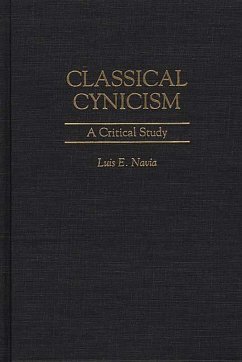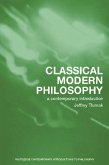More than a school of philosophy with a defined set of beliefs and convictions, classical Cynicism represents an unconventional sect of philosophers and a way of life. This is a complete account of classical Cynicism from its beginnings in the Socratic circle to its extinction in late Roman times. In this thoroughly documented study, Navia explores various issues related to the sources of information about the Cynics, the development of Cynicism, and the principal representatives of classical Cynicism. Exploring the relationship between classical Cynicism and cynicism as understood in its ordinary modern sense, the author argues that despite their common designation, they represent significantly different philosophical attitudes. This book explicates the main ideas associated with classical Cynicism and argues that, its shortcomings notwithstanding, classical Cynicism furnishes us with a wealthy source of philosophical enlightenment.
Individual chapters are devoted to Antisthenes, Diogenes, and Crates, the three principal classical Cynics. Attention is given to the development and application of certain fundamental Cynic ideas and to the transformation of these ideas throughout the eight centuries during which Cynicism was an influential philosophical movement. The book provides abundant references to primary and secondary sources and includes a bibliography of over five hundred entries.
Individual chapters are devoted to Antisthenes, Diogenes, and Crates, the three principal classical Cynics. Attention is given to the development and application of certain fundamental Cynic ideas and to the transformation of these ideas throughout the eight centuries during which Cynicism was an influential philosophical movement. The book provides abundant references to primary and secondary sources and includes a bibliography of over five hundred entries.









